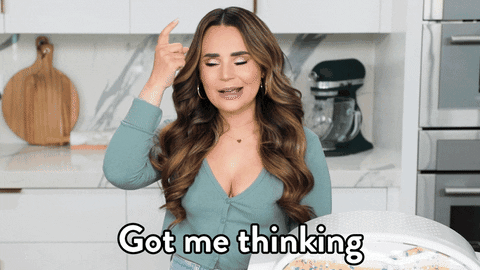HMW #103: Do I really need to do a 1031 exchange?
May 24, 2023
|
Read Time: 4.5 minutes
Our favorite sponsors who help keep this content free for you: Today's issue is sponsored by Jasmine Mortgage Team my preferred residential lender. My clients and I have done over 83 deals directly with Jasmine and her team. Book a free 15-minute consultation with Jasmine today.
And Steadily Landlord Insurance, the premier insurance company for landlords of all types. Landlord insurance created by landlords offering dwelling, umbrella, builder's risk, renters, flood insurance and more. Whether you have short-term or long-term rentals, student housing, vacant properties, or other investment needs, Steadily offers fast, affordable insurance quotes. |
|
A 1031 like-kind exchange strategy is a way to defer real estate taxes that can really allow investors to grow their portfolios. However, chances are you don't want to do 1031 like-kind exchange when you sell your next investment property. 1031s are not one-size fits all nor a must-do for all investors when selling a property. There are 3 considerations you should look at during a sale of an investment property that when fully thought through will probably lead to you just paying taxes at the closing table and forgoing a 1031. I've done four 1031 exchanges in my own investments across $5 million worth of properties and deferring taxes is great and all, but avoiding taxes is better. Quick quiz to see if you are following me on how a 1031 works: If you won a prize of being punched in the face, would you choose to: a) Defer this knuckle sandwich to a date in the future b) Decline this knockout prize and refuse to never accept it
If you said A, then read up on compounding returns because with all that appreciation and equity built up that punch is going to be one hell of a uppercut once it lands. Deferring taxes does not equal avoiding taxes. But no judgment here if you are into financial abuse. Any punch from the IRS is definitely going to be bloody, but an uppercut that has been built-up and deferred property after property over decades is really going to pack a wallop. If you said B, then you are a huge wuss for avoiding contact to your face. But you're a rich wuss. And from a guy with a very punchable face, that's my lane all day, every day. It takes a lot of money for me to maintain this shit-eating grin. I thank myself for all the times I didn't do a 1031 exchanges for keeping my pencil-thin lips from ever swelling up like a botched lip filler injection. So, follow along so you can have more money in your pocket, understand that a 1031 like-kind exchange is not something you should always do, and learn to invest on your own terms instead of with IRS-backed deadlines. Does that sound like a plan? |

|
Oh man. We've got some work to do then. Most people are thinking like you unfortunately and believe: The 1031-like kind exchange is a killer tax loophole that I must use as much as possible.
This is absolutely not true and same with thinking:
Are you now up for undoing the 1031 exchange brain washing you have been subjected to over and over again? |

|
Great, we are making progress! I think. Here are three things to consider about 1031 exchanges that you may not have considered before. Consideration 1: Your lifetime planThis is the most important step to figure out. Look at this scenario you are potentially creating for yourself by rolling properties over and over in a 1031 exchange: $100k Property A is 1031-exchanged into a $300k Property B. Then this is 1031-exchanged into a $900k Property C. Great investing snowball! You deferred taxes to acquire a bigger and bigger property. But now what? If you sell Property C for $1,000,000 in a few years, you'll be taxed as if you bought it for the $100k Property A price. That's a $900,000 gain in equity. If you have a 20% long-term capital tax gain on that and add back dozens of years of depreciation recapture, you could easily create a scenario of owning $300,000 or more on that one sale. Not much tax savings, huh? So what's the best way to use a 1031? It's to use the Grim Reaper as your qualified intermediary. Or said differently, 1031 only if your final exit plan with real estate is death. With this plan, your heirs get something called a stepped-up basis. That $1,000,000 Property C your heirs sell, they pay no taxes because they inherited a property for $1 million and sold it for $1 million. No gain for them. Your heirs get all the benefits, not you. So you have to make sure you like your heirs. (If you ever start looking at your kids with a very questionable eye brown raise, then you know it's time to make me your sole beneficiary. Happy to help get that problem off your hands while you enjoy the afterlife.) |

Consideration 2: You can't predict the future with tax rulesJust because something is a tax rule today, does not mean it will be a tax rule in the future. You will have to wait a lifetime to figure this out. Politicians love making 1031s a talking point and one may eventually act on it. If so the following could happen:
Don't make assumptions 1031 exchanges are going to be a forever thing. Even the US Constitution has 27 amendments. I'm not saying don't ever do it because of this reason, but I am saying be prepared just incase the tax man cometh. In most cases, pay the tax today on your investment sales so you aren't trapped in holding property until death just to avoid taxes. And reward yourself for this future-proofing move with a Delorean if you must. You with me? |

|
That's the reaction I'm looking for! That tells me you are ready for the third thing to consider.
Consideration 3: Having a shot clock on your next moveDuring any negotiations, the side with least urgency will win. When doing a 1031 exchange, you have 45 days to identify the next property you are going to buy. This is putting pressure on you to make an investment decision. This is never a good idea. Being a real estate broker, this is a very common conversation we have amongst ourselves: Me: "Why would anyone pay that much for that? Other Broker: "Their 1031 was running out" Me: "Damn, I need more 1031 clients." So yes, 1031s put a gun to your head and you often have to buy something even if you don't like the property or the price of it. Putting deferring taxes above sound investment fundamentals is never a good idea. |

It's ok, that's what I'm here for. To help you make the right decisions.
So when are you sell your next investment property are you going to use a 1031 exchange?

Summary
- 1031s are not a must do for investors
- 1031 rules may change during your lifetime
- 1031s are great if you plan to die with real estate
- Investing in a time crunch is usually not the wisest move
